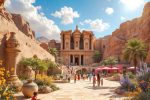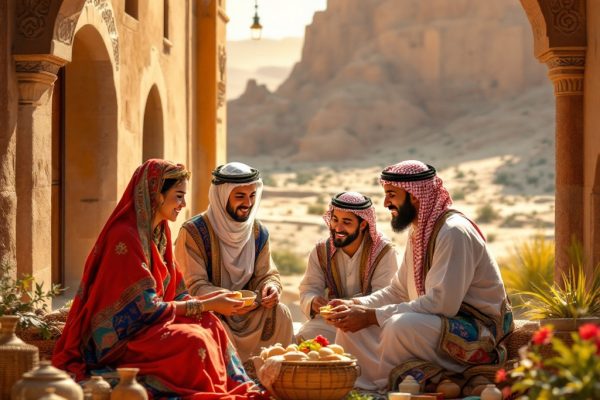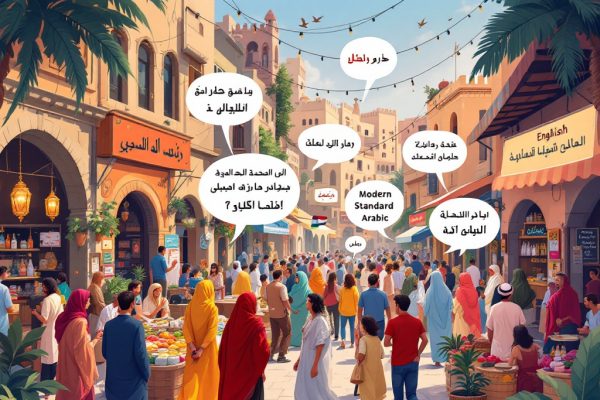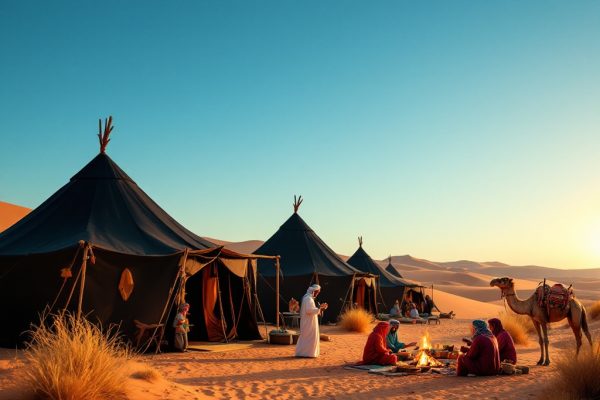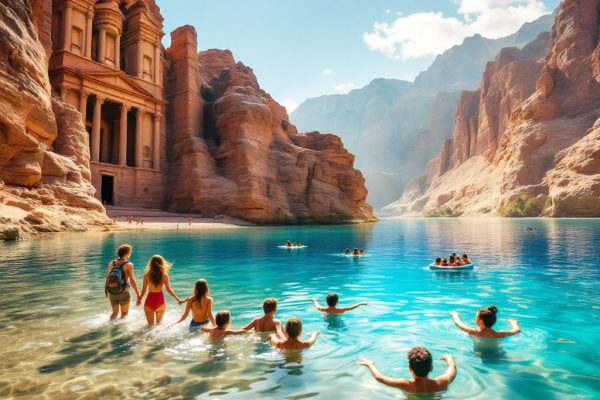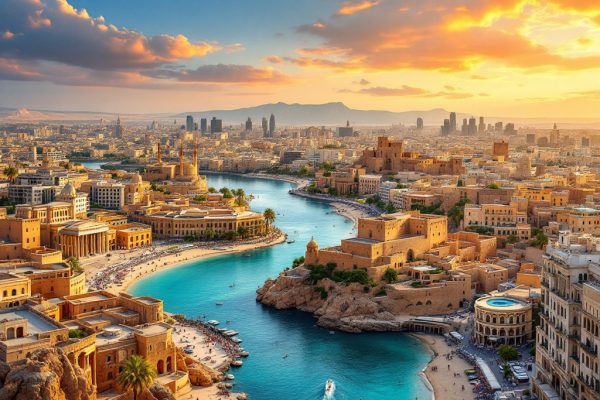Is Ramadan Performed in Jordan?
Journey to Jordan during Ramadan and witness a captivating cultural transformation. Experience the profound spiritual devotion as communities unite in fasting, prayer, and reflection. From dawn-to-dusk fasting to vibrant evening Iftars with traditional dishes like Mansaf, immerse yourself in Jordanian hospitality. Explore local customs, savor the unique atmosphere, and gain a deeper understanding of Islamic traditions. Discover Jordan’s rich heritage during this special time – plan your Ramadan experience today.
Important information
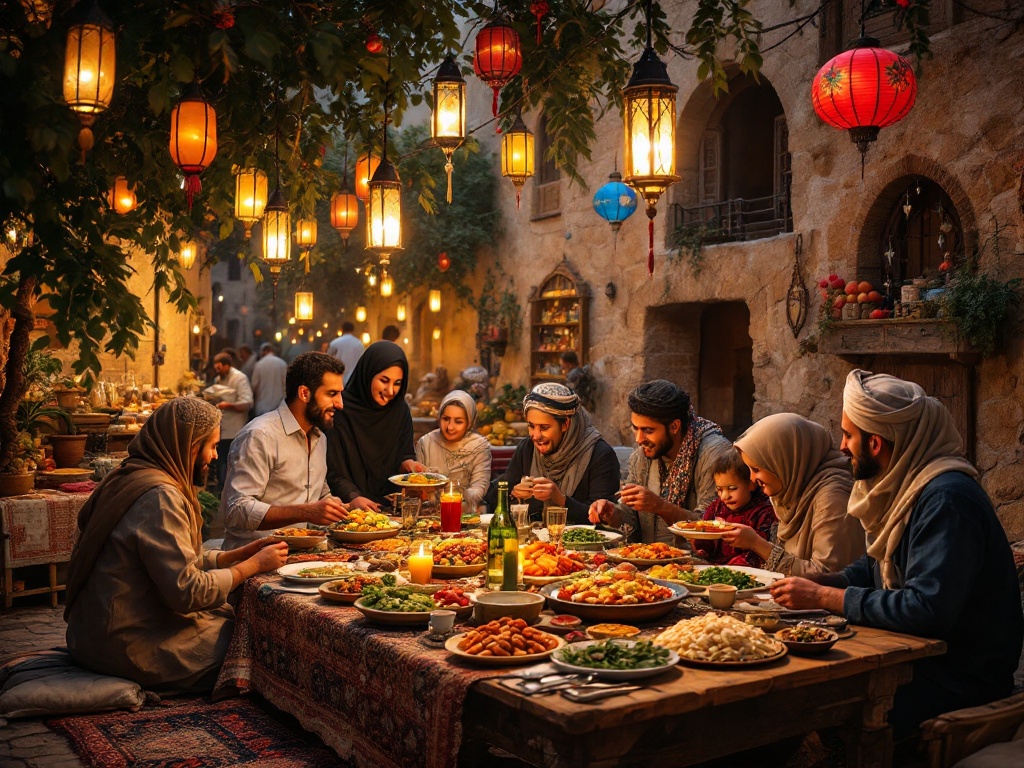
- Ramadan, the ninth month of the Islamic lunar calendar, is a period of fasting, prayer, and reflection for Muslims in Jordan.
- From dawn till dusk, Muslims abstain from food and drink, breaking their fast with the evening meal known as Iftar.
- Iftar is a significant social event, often shared with family and friends, emphasizing community and hospitality.
- During Ramadan, businesses adjust operating hours, and restaurants typically close during the day, reopening for Iftar.
- Visitors should respect local customs by dressing modestly and refraining from eating, drinking, or smoking publicly during daylight hours.
Understanding Ramadan in Jordan
During Ramadan, Jordan’s Muslim community dedicates itself to fasting, prayer, and introspection. This essential practice, one of Islam’s Five Pillars, involves abstaining from food and drink from sunrise to sunset. It’s a deeply spiritual time, fostering personal growth and reinforcing community ties as families gather in celebration and reflection.
What is Ramadan?
During Ramadan, the ninth month of the Islamic lunar calendar, Muslims worldwide observe a period of fasting, prayer, and reflection. This holy month is marked by community gatherings and spiritual renewal. It begins and ends with the sighting of the new moon.
Spiritual Reflection and Religious Obligations
Ramadan is a month of profound spiritual contemplation, marked by increased prayer and Quranic study. Muslims deepen their understanding of their faith during this holy time. It’s also a period for fulfilling religious obligations, such as Zakat, a charitable giving practice to support the less fortunate. Another essential observance is fasting from sunrise to sunset, a central element of Ramadan. Muslims abstain from food and drink during these hours, focusing on self-reflection and spiritual growth. This practice fosters empathy for those experiencing hunger and cultivates gratitude for life’s blessings. The breaking of the fast each evening, known as Iftar, is a communal event, often shared with family and friends, strengthening community bonds.
How Ramadan is Observed in Jordan
During Ramadan, Jordanians fast from dawn till dusk, abstaining from food and drink. However, Iftar, the evening meal, transforms into a significant social occasion. Families and communities gather to break their fast together, highlighting the values of togetherness and Jordanian hospitality. Mosques hold special Taraweeh prayers, and streets are adorned with festive lights, creating a vibrant and spiritual atmosphere. Charity and acts of kindness hold particular importance during this holy month.
Dawn-to-Dusk Fasting Practices
During Ramadan, Jordanian Muslims observe a fast from dawn until dusk, abstaining from food and drink. This essential practice fosters self-discipline and empathy for those less fortunate. The fast concludes at sunset with the Iftar meal.
Community Iftars and Family Gatherings
Community Iftars are a vibrant celebration of togetherness, held at sunset to break the daily fast. Families gather to share specially prepared dishes, strengthening community bonds through this shared meal. Jordanians are renowned for their hospitality, often inviting visitors to partake in the festivities. As the sun sets, streets come alive with people sharing food, creating a lively atmosphere. The meal often begins with dates and water, followed by a delicious array of traditional cuisine. This time of reflection and community building is exemplified by neighbors sharing food, highlighting the core focus on togetherness. It’s a truly special and heartwarming experience.
Experiencing Local Culture During Ramadan
Experiencing Ramadan in Jordan offers a unique cultural immersion. Traditional Iftar dishes like Mansaf and Harees take center stage, shared among family and friends. Jordanians are known for their hospitality, and during Ramadan, this is amplified as they often invite visitors to join in breaking the fast. This shared meal allows guests to experience a core ritual and the genuine warmth of Jordanian culture, fostering understanding and community. The atmosphere is vibrant, with markets and city centers decorated with lights and festive adornments, enriching the cultural experience of Ramadan in Jordan.
Traditional Dishes Served at Iftar
Iftar in Jordan is a culinary celebration centered around traditional dishes. The meal often begins with dates, the first food consumed to break the fast. Mansaf, a flavorful lamb and rice dish, typically serves as the centerpiece of the Iftar feast. Soups and salads complement the mansaf, while sweet treats like kunafa and qatayef provide a delightful finish. More than just a meal, Iftar is a cherished time for family and friends to gather, strengthening community bonds.
Hospitality and Invitations from Locals
Jordanians are renowned for their hospitality, which is especially evident during Ramadan. Accepting an invitation to Iftar, the evening meal breaking the fast, provides a unique cultural experience. Sharing this meal fosters understanding and strengthens bonds between locals and visitors.
Changes in Daily Life During Ramadan
During Ramadan, life in Jordan undergoes a palpable transformation. Businesses adjust their operating hours, often shortening the workday to accommodate the fasting period. Restaurants typically close during the day and reopen later for iftar, the evening meal breaking the fast. Public consumption of alcohol is frequently restricted as a mark of respect for those observing Ramadan. The overall pace of life slows, shifting towards spiritual reflection and a strong sense of community, with an emphasis on prayer and togetherness.
Business Operations and Work Hours
During Ramadan, most businesses adjust their operating hours. They often shorten the workday to accommodate employee prayer and iftar. Despite these changes, core business operations continue.
Restrictions on Restaurants and Alcohol
In Jordan, most restaurants close during daylight hours for Ramadan, a time of fasting, prayer, and reflection. Alcohol sales are also typically restricted out of respect for the holy month. While some restaurants may open after sunset to serve iftar, and some hotels might offer alcohol to guests, public observance of Ramadan is widely practiced.
Community and Religious Leadership During Ramadan
Jordan’s Ifta Department provides essential guidance to the community during Ramadan. It helps Muslims harmonize Islamic principles with local customs, offering advice on prayer schedules and fasting practices. The Department also addresses religious inquiries, promoting a unified and informed observance of Ramadan.
Guidance from the Ifta Department
The Ifta Department offers guidance on Ramadan traditions, focusing on fasting and community practices to promote respectful observance and honor these customs.
Tourism in Jordan During Ramadan
Experience the unique atmosphere of Ramadan in Jordan, a period of profound spiritual reflection. Dress modestly out of respect and refrain from eating, drinking, or smoking publicly during daylight hours. After sunset, participate in iftar, a communal meal enjoyed in local restaurants and cafes. Savor traditional Jordanian cuisine and experience their warm hospitality. Observe nightly prayers and community gatherings for a deeper understanding of Jordanian traditions. Tourist sites generally remain open, although some businesses may adjust their hours. Plan your visit accordingly to fully experience Jordan’s rich history and cultural heritage during this special time.
Respectful Practices During Ramadan
- dress modestly as a mark of respect,
- refrain from eating, drinking, or smoking in public during daylight hours.
Experiencing Jordanian Culture
- join the locals for iftar, a delicious meal shared after sunset,
- savor traditional Jordanian cuisine and hospitality,
- observe nightly prayers and community gatherings.
Tourist sites generally remain open, but some businesses may operate with altered schedules. Plan your visit accordingly for a truly enriching experience.
Respecting Local Customs as a Traveler
During Ramadan, show respect by refraining from eating, drinking, and smoking in public during daylight hours. This acknowledges those who are fasting. Deepen your understanding by engaging with the local community. Accept invitations to Iftar, the evening meal breaking the fast, for a powerful cultural experience. Modest dress is also appreciated.

